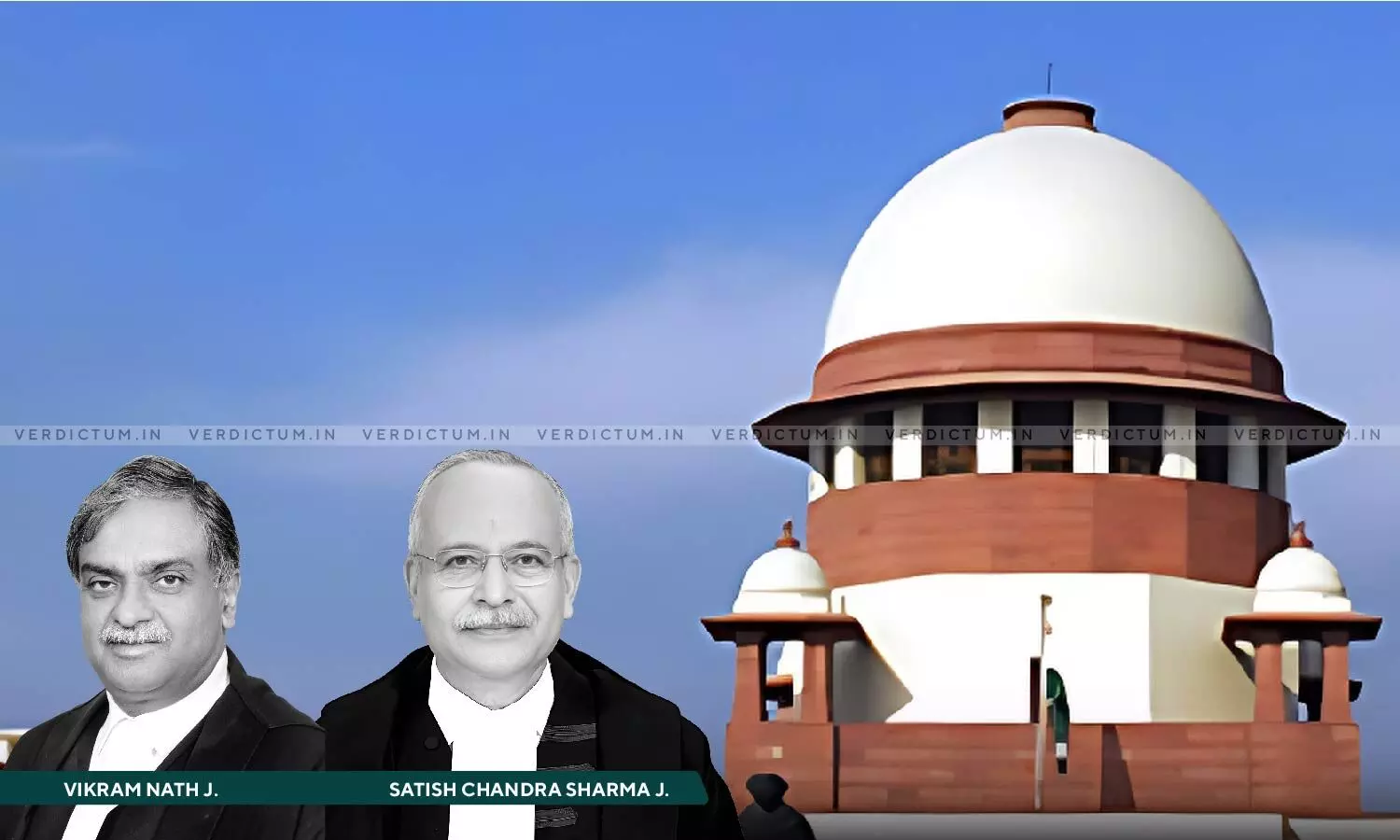
Identification Of Individual Instances Of ‘Alienating Behaviour’ Required To Invoke Principle Of Parental Alienation Syndrome To Overcome Preference Indicated By Minor Children: SC
 |
|The Supreme Court observed that the identification of individual instances of ‘alienating behaviour’ was required to invoke the principle of parental alienation syndrome to overcome the preference indicated by the minor children.
The Bench ordered that the father would retain custody of the minor children, granting visitation rights to the mother stating that while the desire or preference of the minor children alone cannot determine custody, it must be given due consideration as it is a factor of "utmost importance."
Justice Vikram Nath and Justice Satish Chandra Sharma observed, “Courts ought not to prematurely and without identification of individual instances of ‘alienating behaviour’, label any parent as propagator and / or potential promoter of such behaviour. The aforesaid label has far-reaching implications which must not be imputed or attributed to an individual parent routinely…Accordingly, it is our considered opinion that Courts must endeavour to identify individual instances of ‘alienating behaviour’in order to invoke the principle of parental alienation so as to overcome the preference indicated by the minor children.”
Sr. Advocates Mukul Rohatgi, Shyam Divan, and Sonia Mathur represented the appellant, while Sr. Advocates C.A. Sundaram, Dama Seshadri Naidu, Ardenumauli Prasad and Ajit Bhasme appeared for the respondents.
The mother had argued that the preference indicated by the minor children was a classic case of ‘parental alienation syndrome’ (PAS) wherein the minor children had been influenced against the mother and accordingly the preference indicated by them should not be considered.
While this submission found favour with the Bombay High Court, the Supreme Court did not agree with the same observing that “PAS is a thoroughly convoluted and intricate phenomenon that requires serious consideration and deliberation.”
“Therefore, in our considered opinion, the High Court failed to appreciate the aforesaid nuance and proceeded on an unsubstantiated assumption i.e., that allegations of parental alienation could not be ruled out, despite the stark absence of any instances of 'alienating behaviour' having been identified by any Court,” the Court remarked.
The Bench observed that despite the minor children expressing their preference for a guardian on many occasions, the High Court found them "confident and well-groomed," stating that they did not overtly indicate a preference for one parent over the other.
On the contrary, the family court had observed that the minor children had expressed their preference to reside with the father and acknowledging the same, the custody was granted to the father.
Similarly, when the Supreme Court interacted with the minor children, it found that the Minor Children were “intelligent, confident, cognisant of the pros and cons of their decisions and most importantly content / happy. During our interactions with the Minor Children, despite probing the issue of guardianship on more than one occasion, the Minor Children categorically stated that they were happy and wished to reside with their father only i.e., the Appellant.”
While deciding an application for guardianship of minor children under the Guardian and Wards Act, 1890 (the Act), the Bench explained that the principal consideration should be the ‘welfare’ of the minor children encompassing:
- socioeconomic and educational opportunities for the Minor Children;
- their healthcare and overall wellbeing; and
- providing a conducive physical environment for their growth, while also considering their preferences under Section 17(3) of the Act.
Accordingly, the Supreme Court set aside the Impugned Order of the High Court and allowed the appeal.
Cause Title: ABC v. XYZ (Neutral Citation: 2024 INSC 397)
Appearance:
Appellant: Sr. Advocates Mukul Rohatgi, Shyam Divan and Sonia Mathur; AOR E. C. Agrawala; Advocates Mahesh Agarwal, Ankur Saigal, Anurag Gharote, Aanchal Mullick, Uday Aditya Banarjee, Kartikeya Desai, S. Lakshmi Iyer, Shashwat Patnaik, Rajesh K. Satpalkar, Divik Mathur and Sukriti Bhatnagar
Respondents: Sr. Advocates C.A. Sundaram, Dama Seshadri Naidu, Ardenumauli Prasad and Ajit Bhasme; AOR Dilip Annasaheb Taur, Shivaji M. Jadhav, Aaditya Aniruddha Pande and Sanjay Kumar Visen; Advocates Amol V. Deshmukh, Anand Dilip Landge, Siddharth Dharmadhikari, Bharat Bagla, Sourav Singh, Aditya Krishna, Preet S. Phanse, Adarsh Dubey, Parth Sarathi and Gyanendra Vikram Singh